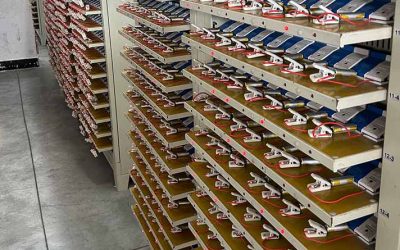The main differences between lithium-ion (Li-ion) and lithium polymer (LiPo) batteries lie in their construction, performance characteristics, and applications:
- Construction:
- Lithium-Ion (Li-ion): Typically constructed with a rigid metal or hard plastic case. Inside, it contains liquid electrolytes and separate layers of anode (usually graphite) and cathode (typically lithium cobalt oxide or similar materials).
- Lithium Polymer (LiPo): Uses a flexible, pouch-like packaging instead of a rigid metal or plastic case. It employs a solid electrolyte or gel-like electrolyte rather than liquid, and the electrodes are usually coated onto a flexible, polymer-based separator.
- Shape and Size:
- Li-ion: Generally more rigid in shape due to the metal or hard plastic casing, limiting flexibility in design.
- LiPo: Can be made in various shapes and sizes due to the flexible packaging, making them ideal for applications where space and weight are critical factors.
- Energy Density:
- Li-ion: Traditionally had higher energy density, making them suitable for applications where maximizing energy storage in a compact space is essential.
- LiPo: Recent advancements have closed the gap, and they now offer comparable energy density to Li-ion batteries.
- Performance Characteristics:
- Li-ion: Known for good stability and longevity, with well-established performance characteristics over decades of use.
- LiPo: Can potentially offer higher discharge rates and better performance under high currents, which makes them popular in applications like RC vehicles and drones.
- Safety:
- Both types require careful handling to prevent overheating, short circuits, or other safety issues. Li-ion batteries have a more established safety record due to their longer history of use.
- Applications:
- Li-ion: Widely used in consumer electronics (laptops, smartphones, tablets), electric vehicles, and energy storage systems.
- LiPo: Commonly found in consumer electronics (especially smaller devices), drones, RC vehicles, wearable technology, and other applications where weight and shape flexibility are critical.
In summary, while both Li-ion and LiPo batteries use lithium-based chemistries and offer rechargeable capabilities, their differences in construction, flexibility, performance characteristics, and applications make each suitable for distinct uses in various industries.
